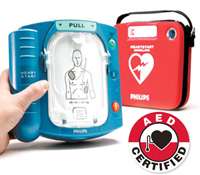Personal trainers are not just for the rich and famous, or Olympic athletes gearing up for an event.
A personal trainer can help you to reach your health and fitness goals — or, they could be a big waste of money, as many of us may have been unfortunate to experience!
So, how do you know if you need a personal trainer — and if you do, how do you pick one that’s right for you?
Do I need a trainer?
If you’re asking the question, chances are that you do. If the thought has occurred to you, it is most likely because you have a particular goal in mind, or you’re a bit timid at the gym, or perhaps you’ve looked on at a personal training session and found it interesting. The good thing about answering “Yes” to this question is that it’s not a lifelong commitment.
This is not a life-or-death decision. It’s not as though deciding you need a trainer today will mean you’ll need one forever. Committing yourself to one trainer is not the equivalent to a marriage — if one isn’t working out, you can try someone else.
A personal trainer will be most helpful if:
- You are new to using gym equipment, or new to training in general
- You have been training for some time with little to no results
- You want more variety in your training programme and need guidance
- You are focused on a particular goal within a specific time frame — you want to fit into a wedding dress, or add 10lbs of muscle before an upcoming vacation so you can strut your pecs confidently on the beach
- You are recovering from an injury — after the necessary rehabilitation phase, it may be useful to use a qualified personal trainer to ease back into training
- You are starting the “gym thing” at a late-ish phase in life — if you’re, say, over 40 and now considering lifting a weight for the first time in your life, having a trainer beside you will help you to get on the right path in the shortest space of time — as opposed trying to “find your gym self” by mimicking more experienced friends or younger people at a gym.
How do I find a trainer?

Some gyms offer personal training services for their members at additional fees, or employ general floor staff that may do personal training on the side. Be wary particularly when approaching floor staff, though — in many local gyms there is no effective screening process for what is labelled a “floor trainer” i.e. someone who orients new persons, demonstrates how to use equipment and assists people with exercises. Often a floor trainer may be little more than a “buff fella” or “fit girl” who’s been around the gym but has had no actual experience as a trainer.
Some trainers advertise, but many do not — in Trinidad and Tobago, it’s safe to say many trainers get new clientele through word-of-mouth.
While this is a great way to get feedback, keep in mind that what works for one person will not always work for another. Some people need a personal trainer who will yell at them and demand more, whereas others may prefer a quieter approach where the trainer just guides them as they go along. Some prefer less talking during a session — “do it, no questions asked”, whereas some may need to understand every exercise they are doing and its underlying purpose.
Just as you need to shop around for a good mate, you may need to do the same for a personal trainer.
Similarly, there are various possible approaches to conducting a training session — you may prefer a trainer that has his or her own studio, or you may prefer someone who has sessions at a conveniently located gym, or you may even have someone come to your home if it is appropriate to train there. Some trainers do more “outdoor” work, so they may incorporate a run or cycling session into a training programme.
What should I ask a potential trainer?

Remember that you are hiring this person to work for you, so treat it like a job interview. If you hear the words “consultation fee” for the first meeting, run. This should not be a consultation — that is a specific type of meeting where a trainer draws out a workout plan based on your calculations specifically tailored to you. What you are looking for is just a meeting to touch base with the trainer and see if he or he will be suitable for you.
Once you’ve figured out the basics of where and when you’ll be training (or maybe even before!), here’s a few more things you should ask anyone you engage in performing the services of a personal trainer:
What qualifications and experience do you have?
Some certifications you may hear about are International Sports Sciences Association (ISSA), National Strength and Conditioning Association (NSCA), American Council on Exercise (ACE), Aerobics and Fitness Association of America (AAFA), American Sports and Fitness Association (ASFA), Cooper’s Institute, and National Academy of Sports Medicine (NASM). It is your responsibility to not only see the trainer’s credentials for yourself, but to do your own research on the institution they got them from to validate their claim that it is authentic.
Are CPR, First Aid and/or AED certified?

Don’t be afraid to ask to see a copy of all of their certifications to make sure they are current. While these are not mandatory, it’s a good idea for anyone in the health and fitness industry to have a few of these foundation blocks if they are serious about pursuing this as a career.
AED stands for automated external defibrillator and if you or someone else at the gym has a heart attack, it can save a life.
If you pass out or injure yourself during a session, will your trainer have some basic knowledge of what to do… and do you really want to take the risk he or she doesn’t?
What kind of motivational techniques do you use to help your clients reach their goals?
This is the trainer’s moment to shine. They may tell you about past experiences with clients — both successful and unsuccessful. Find out if their past and current clients have been long-term or short-term.
If long-term, he or she is probably good at relationship building and at keeping workouts fresh and challenging over time. If short-term, the personal trainer may be new to the industry, or have underlying training or personality issues — if you want to give a trainer without the longevity a chance, perhaps you could suggest a short trial period of a month or so.
Knowing my specific fitness goals, what kind of workout plan will you develop for me?

Although this is an initial feeling-each-other-out session, your potential trainer should have some kind of idea or plan to start with, which they can adapt as you get to know each other and figure out what works for you.
You should be wary if the approach seems to be very set in stone before he or she has even seen you in a gym environment — this is not realistic.
It’s difficult for a trainer to have a proper idea of what you are capable of until you begin, and while their “6 week plan” to get ripped may have worked for others, that does not mean it will work in exactly the same way for you.
What kind of fitness assessments do you perform and how often?
Fitness assessments like body fat testing, blood pressure screening, and strength, flexibility and endurance tests will help your trainer gauge your starting fitness level and design a safe exercise program. Typically, he or she should perform these assessments over time and adjust your training program accordingly.
How many times per week do you train clients, and how many are you training right now?
Many personal trainers train as a part-time job, particularly in Trinidad & Tobago and throughout the Caribbean where the fitness industry is not as well developed as in larger countries. If this number is below 10, don’t be afraid. Just follow up by asking whether they have a full-time job.
If they don’t have another job, then ask why they train so infrequently. If they do 30-plus sessions a week, ask them how they keep things fresh and how they avoid burnout. Most trainers who do more than 30 sessions a week are working very long hours, almost every day of the week.
With that much training, burnout is inevitable, and you don’t want it to happen during your session! And, as a bonus, if they are training others at present, why not ask if it would be possible to observe or even ‘fall in’ a session?
Do you have current or past clients I could contact as references?
If your potential trainer sounds cagey, or seems to have lost contact with just about everyone they’ve ever trained, be wary!
How do you stay in shape? (assuming of course that he/she is fit)

While of course it is not absolutely necessary for someone to be ripped if they want to be a personal trainer, most personal trainers wear their body as an advertisement — and they should.
As judgmental as it may sound, no one wants a chubby or wimpy looking trainer!
Why are you a personal trainer?
This one addresses why the trainer got into the fitness field. If it’s to see people transform their bodies, then you know the trainer focuses on the physical. If the trainer says it’s to help people transform their lives, then you know they’ll probably have your well-being in mind.
Listen to their story — this is another moment for them to shine and show you who they are as both a person and a trainer. If the trainer takes a few minutes to answer or isn’t sure, run far, far away!
Red Flags
Although there are many reputable trainers out there who know what they are doing, there are also those who don’t. Here are two common warning signs to look for that will tell you if this trainer is one to avoid.
He or she tries to sell you supplements before your first session, or early in.

While all supplements are not evil, if you’ve never taken one before and your new trainer is more than anxious to have you try something, be wary! Many trainers earn commission for the products they sell, which could be a conflict of interest. The average person does not need a multitude of supplements to succeed — particularly if you are entirely new to training.
If they insist on pumping you full of pills and powders before you even get a chance to see if their training skills are worth the money, that’s a serious red flag. Get some experience in training, and see if you even need a supplement first. If you’ve been training awhile and want to try it on your own, you can ask you trainer for advice, and even then you should always ALWAYS make sure to do your own research.
He or she is acting like a nutritionist and setting unrealistic meal plans.

Just because someone is a personal trainer does not mean they are qualified to give advice about your diet. Many will call themselves “nutritionists,” but that does not mean they have a degree or any formal training in this area.
In fact, the only person legally qualified to give specific diet advice is a Registered Dietitian. If you wish to take dieting advice from your trainer, make sure you can see for yourself that the diet is sensible and substantial enough to cover your caloric requirements and nutrient intake.
Do your research on what a healthy balanced diet should look like. If you’re still not sure, seek out help from a Registered Dietitian.
In general, hiring a trainer can be a good way to make your workouts more enjoyable, effective and targeted to your specific needs. It’s important to do your homework before hiring someone to make sure you get the expertise you’re paying for. Then you’re more likely to be satisfied with your investment and will be one step closer to reaching your health and fitness goals!

